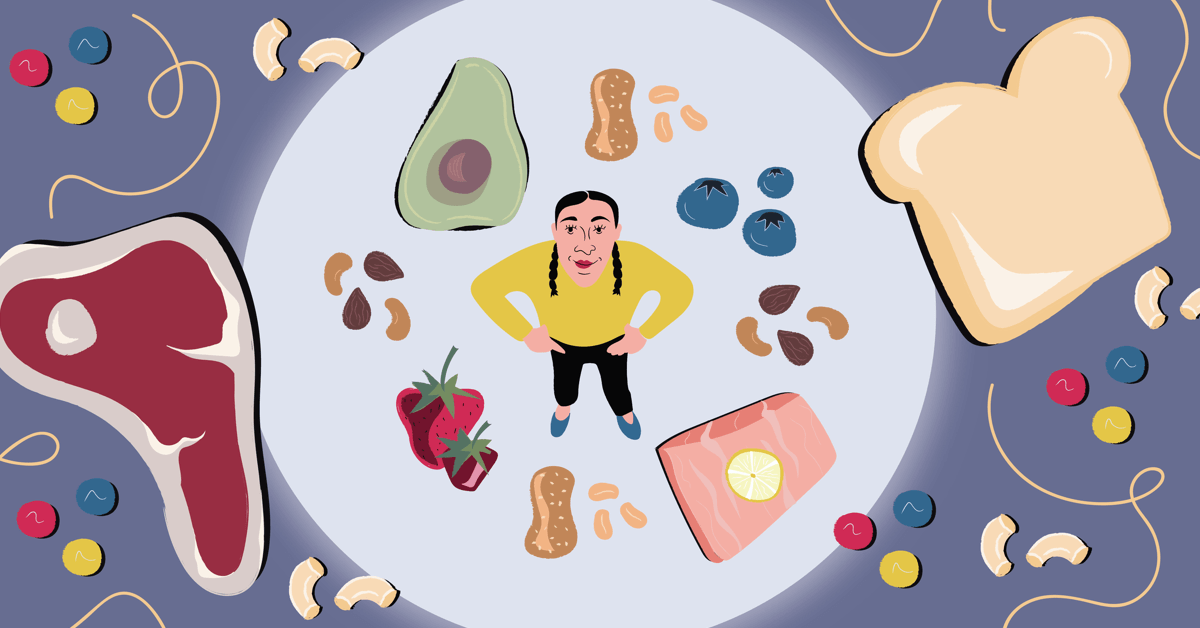Should You Keep a Food Diary With IBD?
This is a question I often see discussed amongst IBD patients. Are food diaries a good idea for those of us with Crohn's or colitis? Or are they a waste of time? I thought I'd share my own experiences along with the potential advantages and disadvantages of keeping a food diary if you're considering starting one.
What is a food diary for IBD?
A food diary is a written record of everything you've eaten over a period of a few weeks. It's often done alongside recording your symptoms and bowel movements so you can then correlate the two to see if you can find a pattern.
Keeping a food diary is thought to help those with gut issues pinpoint if certain foods trigger symptoms. They can then look to temporarily eliminate certain foods, usually one at a time, to see if that helps with symptoms.
It doesn't have to be a case of putting pen to paper. Lots of people use apps that help them record their food diaries.
What are the benefits of keeping a food diary?
Firstly, it's important to stress that no food diary, however detailed, can offer a solution or cure for IBD. Instead, they are sometimes recommended if patients suspect diet plays a part in their condition. Dieticians often recommend food diaries to use as a starting point because sometimes finding trigger foods can be a bit like scrambling around in the dark.
From this, the dietician can then get an idea of how to proceed and what potential food triggers to focus on first. It can also be useful for IBD patients who appear to be in clinical remission but still have symptoms. There's a high prevalence of IBS symptoms in those with IBD who are otherwise well, with almost 60% of people with Crohn's disease who are in clinical remission reporting having IBS symptoms.1
Keeping a food diary may also potentially encourage those with IBD to eat healthier and pay more attention to their diet in general. The biggest benefit is you may notice a pattern and then eliminate certain foods, which may improve things like pain and bowel movements which are obviously a huge plus for those with IBD.
What are the drawbacks?
One drawback to keeping a food diary with IBD is it can be frustrating. The role of diet is complicated and is not always straightforward to interpret. You may notice foods cause a reaction one day but not the next. It also ignores other aspects – such as stress, sleep, or exercise – which all may impact results in turn, as well as sometimes a flare-up and symptoms happening for no reason at all.
Another drawback is it can sometimes cause patients to blame themselves for eating certain foods and feel guilty over what they've eaten or suddenly restrict whole food groups at once putting them more at risk of nutritional deficiencies.
Finally, not all IBD patients find notice diet changes make a difference, as it really is personal. It goes without saying that a food diary can't replace medication.
Verdict: Is an IBD food diary worth trying?
Overall, I definitely think it's worth trying a food diary if you think food may make certain IBD symptoms worse. I've definitely found keeping one helpful, but equally have also felt guilty when I have had symptoms in case I've eaten the "wrong" food.
The most important thing is to always do it with the support of a dietician to ensure you have the proper support to make potential diet changes.

Join the conversation